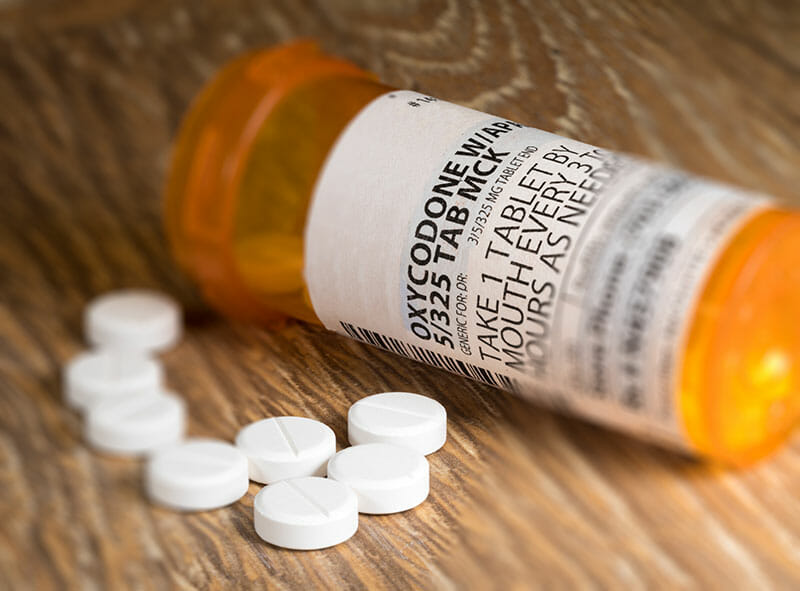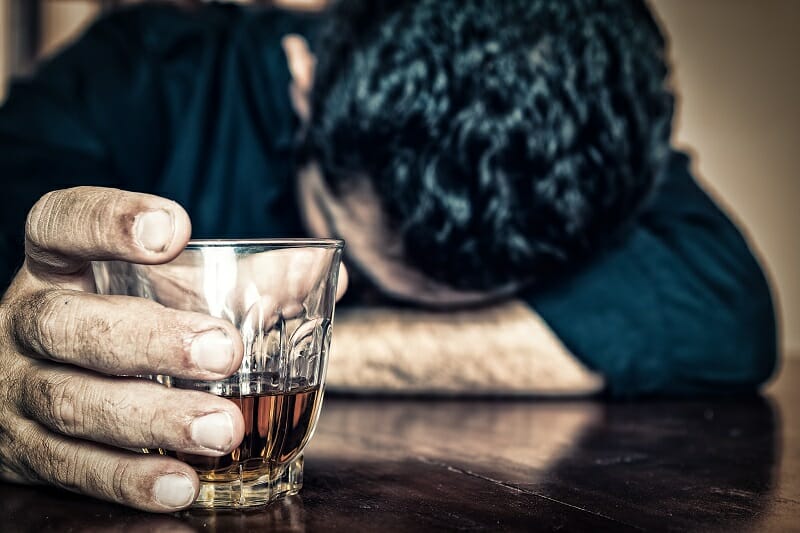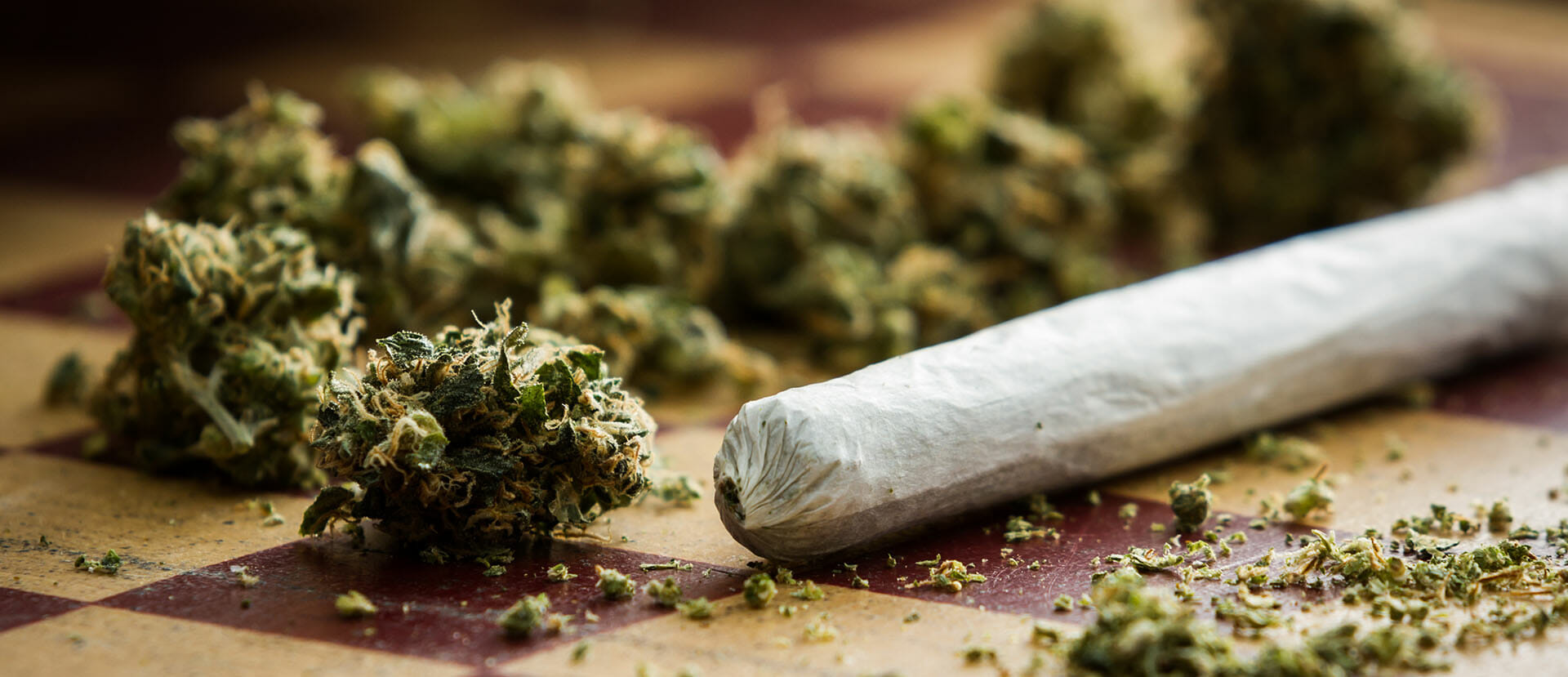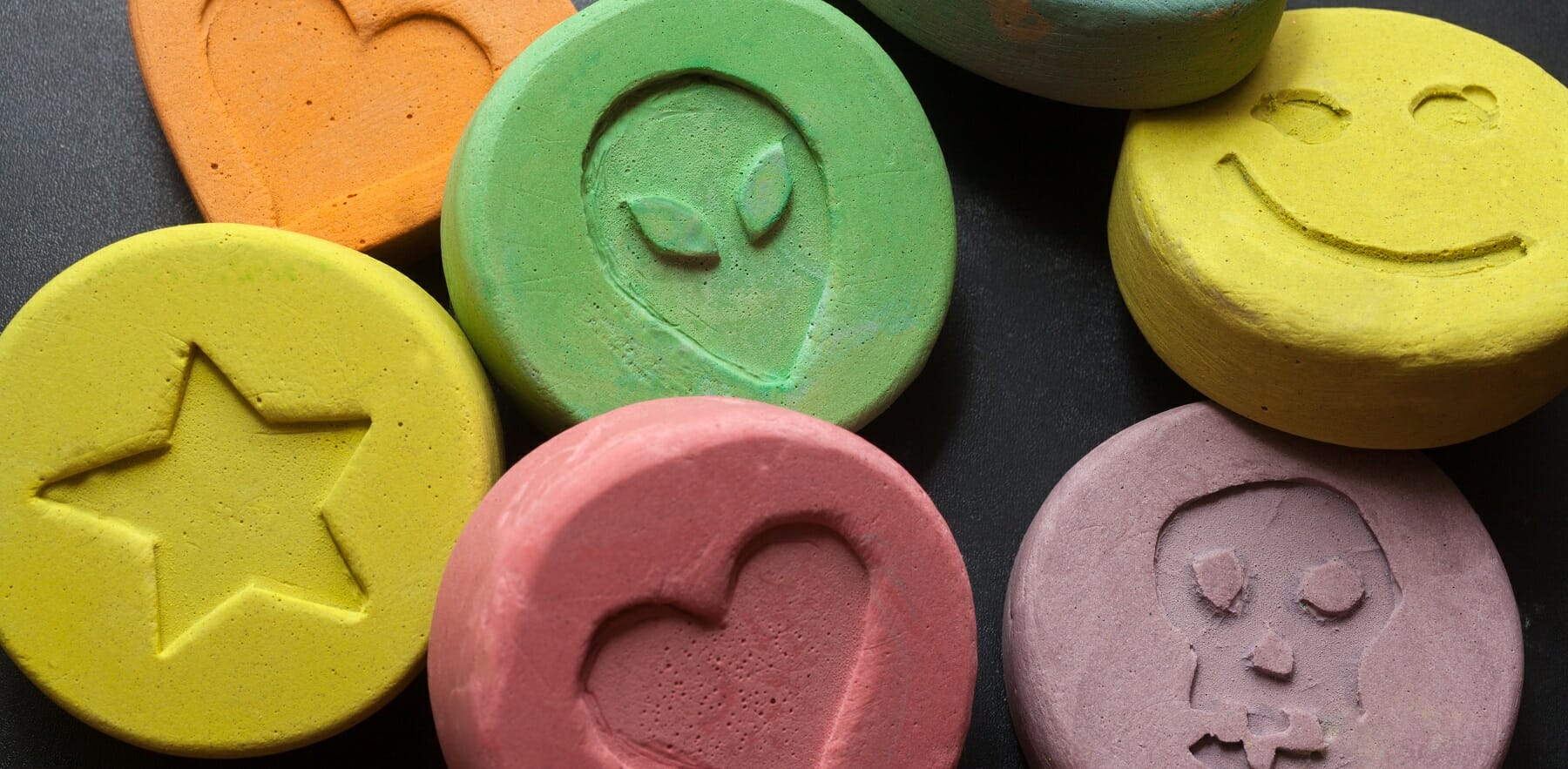Signs & Symptoms of Addiction Explained
Addiction is a disorder of the brain in which an affected person engages repeatedly and compulsively in a specific activity – often, though not always, the consumption of substances of abuse – despite the negative consequences of doing so – which can often be extremely dangerous and potentially life-changing. Addiction is typically divided into two types: drug addiction (including alcoholism) which refers to the compulsive consumption of a substance or substances, and behavioural addiction in which the compulsion is to engage in a particular activity or set of behaviours.
While those two categories can be very similar in terms of the mechanisms behind them, and their effects upon the addict and those around them, this article will focus on the former category (drug addiction). The unifying element is reward. Both activities change the reward-mechanisms in our brains and this is why we may become addicted to them.
Identifying Addiction
Whilst there are many signs and symptoms which tend to be commonly found in such cases, it is certainly possible for a person to suffer from addiction without displaying all – or even any – such symptoms. Meanwhile, one person’s addiction may look quite different from another’s in terms of visible signs, even if they are addicted to the same substance, while people addicted to different substances may display vastly different symptoms (see below for details of the symptoms typically associated with specific substances of abuse).

Although we will be discussing here a broad range of symptoms and behavioural traits which may be identifiable in many if not most cases, it must always be remembered that there are few hard and fast rules which apply in every case, and the fact that a given person does not display some of the symptoms described in this article is no guarantee that they are not in fact addicted (whilst on the other hand displaying one or even several of the symptoms in question may not automatically indicate the certainty of addiction).
Call our admissions line 24 hours a day to get help.
That said, indeed, the majority of cases of addiction will indeed be identifiable through a manifestation of symptoms. Addiction could rapidly become an all-encompassing, life-changing condition with enormous ramifications for the addict and those close to them. Physically, mentally, emotionally, financially and in many other ways, addiction can and usually does have a profound effect on the addict which becomes increasingly hard to conceal from others (generally despite the addict’s very best efforts).
Changes in a person’s character, habits, peer group, appearance, hygiene levels, dietary and sleeping patterns, sexual behaviour, vocabulary, financial status, world view and many other aspects can all result from addiction and can indicate to observers the problem at hand. Addiction is often associated with a broad range of other problems and conditions – illnesses, mental health disorders and others – which may have their own symptoms which can also betray the underlying problem of addiction.
Alongside any of these visible symptoms which may be identified by others, one crucial sign of addiction is entirely internalised: regardless of any other symptoms or the lack thereof, if your loved one personally believes that they have an addiction and know that they have attempted to stop but failed, then they are almost certainly an addict and should seek help regardless of how the situation may appear from the outside.
Physical signs of addiction
Understandably, the physical signs of drug abuse vary significantly from one substance to another: a person engaging in the intravenous consumption of heroin, for example, is likely to appear and behave very differently from someone taking a stimulant such as cocaine, and again from someone under the influence of hallucinogens.
Whilst merely having consumed a drug does not necessarily indicate an addiction, regardless of specificities if someone frequently displays signs of intoxication (of whatever type) concerns should be raised that their substance abuse is taking place so regularly as to constitute a problem, and could very well mean that they are addicted (for example, observing someone “high” on cocaine once at a party may not indicate that they have a problem; if they are “high” every time you meet them, it is far more likely that their use of the drug has gone well beyond the recreational).
With that in mind, it is however the case that some physical symptoms may be common to addiction generally regardless of the substance in question. For example, frequent tiredness and fatigue (possibly affecting the quality of a person’s work), radically altered sleeping and eating patterns, negligence towards personal hygiene and appearance, frequent nausea and/or flu-like symptoms, red and watery eyes, gum disease and other dental problems, itching, muscle spasms and tics, skin disorders, rapid weight loss (or, less frequently, weight gain), bouts of dizziness, fainting/unconsciousness, grinding teeth and/or jaw clenching, bouts of incoherence, frequent sweating and/or shivering, regularly smelling of alcohol and/or other substances, and tremors may all indicate regular substance abuse and possibly addiction.

Behavioural signs of addiction
Again, different substances can provoke very different behaviours in those consuming them – so someone abusing strong sedatives, for example, is likely to act very differently from someone who has taken stimulants.
One good rule of thumb, regardless of the specific substance, is that sudden and/or pronounced changes in behaviour from someone’s normal mode may well indicate substance abuse and possibly addiction: for example, someone who is usually calm and laid-back beginning to display frequent agitation, bursts of unusual energy, or bouts of aggression could well (though, importantly, is not definitely) be under the influence of drugs.
Some behavioural symptoms which may be common across addiction, regardless of type, may include volatile mood swings; frequent forgetfulness, depression, changes in peer-group, vocabulary, attire and choice of social events, radically altered sex drive and changing sexual habits; deceitfulness, increased isolation and seclusion, regular tardiness, absenteeism from work or education, sporadic employment, apathy, loss of interest in previously enjoyed activities, visibly deteriorated financial circumstances, frequent requests to borrow money, paranoia, pronounced decline in cognitive faculties, sleeping during the day, irritability, possibly leading to regular arguments with family, friends and colleagues, frequent temporary disappearances from gatherings, stealing and/or committing other crimes, possessing paraphernalia related to substance abuse, frequently suggesting the consumption of drugs during social gatherings, even when obviously inappropriate, and regularly behaving in socially unacceptable ways.
Again, the display of one or various of these symptoms does not automatically indicate an addiction, and anyone observing them in a loved one, friend or colleague should avoid jumping to conclusions without further investigation, as there may well be an alternative explanation. However, concern should certainly be raised if several of these symptoms are observed together.
Call our admissions line 24 hours a day to get help.
Emotional Signs of Addiction
Addiction can take a terrible emotional toll on anyone struggling with it. Certain substances themselves can have a pronounced emotional effect, whilst the negative consequences of addiction on someone’s self-esteem, life prospects and relationships with others can all be emotionally damaging. One of the most common and detrimental consequences of addiction is depression, which affects many addicts and which drives a tragically high number of suicides. Substantially lowered self-esteem and self-worth, and feelings of despair and existential fear, are also typical responses to the burden of addiction – however, the consumption of their drug or drugs of choice can also inspire radically elevated moods while addicts are under the influence.
Both because of the immediate and long-term effects of the substance/s being consumed, and because of the broader ramifications of addiction, an addict’s ability to engage emotionally with others on a normal basis can become greatly limited – for example, they may find it difficult to reciprocate feelings of tenderness or kindness, or even love, while trusting others can also be very difficult for an addict (partly because they may have surrounded themselves with untrustworthy people as a result of their obtaining and consuming drugs, and partly because they may find it difficult to trust themselves, having come to break various commitments to themselves or others because of their desperation for drugs).
Emotional disorders of various kinds are frequently observed amongst addicts, and whilst emotional volatility and/or pronounced emotional change is not necessarily a consequence of addiction it is certainly not an atypical response to it.
Recognising Unhealthy Drug Use in Family Members
One of the most common and prominent signs that someone is regularly abusing drink or drugs and may be struggling with an addiction is pronounced behavioural change; family members are typically those (or certainly among those) who know a person best, and tend therefore to be best placed to observe such changes in behaviour. They may also be most familiar with specific idiosyncrasies in an individual (for example, recognising when that person may be lying, or unhappy, even if they may be able to conceal it from most other people) and therefore able to identify symptoms which may be particular to the person in question.
On the other hand, many people find it very difficult to believe that a loved one can be engaging in substance abuse, let alone could develop an addiction, and may be blind (willfully or otherwise) to signs which other people outside the family might recognise very quickly. It is important to remember that addiction is an illness which can affect anybody, and simply because someone is a member of your family and you love them does not make them immune; saying “Oh, that couldn’t happen to X!” is dangerous, though understandable, approach.
If you are concerned that a member of your family may be developing or struggling with an addiction, study the signs and symptoms and, if that person is displaying some of them, try to eliminate any other possible cause. Do not immediately conclude that addiction is the cause. On the other hand, do not rule it out: again, just because they are a member of your family does not somehow make them magically impervious to the lure of substance abuse which may result in addiction.
Addiction Signs and Symptoms Depending on Substance
While many of the symptoms relate to addiction generally, as noted the effects of substance abuse vary considerably from one drug to another – and as one of the most obvious signs of addiction is regular or even constant intoxication, it is important to understand how such intoxication manifests itself by substance. Similarly, the after-effects of intoxication – and in some cases the long-term impacts of regular consumption – can also vary substantially from one drug to the next. Alongside the general symptoms, the following sections cover signs associated with the abuse of, and addiction to, various different substances of abuse.

Marijuana, hashish and other cannabis-containing substances
Cannabis (aka marijuana – and by a great many other names) is the most commonly consumed illegal substance worldwide and a substantial subculture has grown up around the consumption of cannabis and related activities. The image of the cannabis leaf is now something of a recognisable “brand”, found on anything from items of clothing and jewellery to posters, furniture, car stickers and much else.
It is quite possible that a person may display such imagery without necessarily engaging in cannabis consumption; however, it is fair to say that in most cases someone who does so is, at least, not entirely unfamiliar with cannabis use. It is also possible that someone can possess paraphernalia usually associated with cannabis use – for example, bongs or other smoking equipment – whilst not using them to consume cannabis; again, though, in most cases it can be assumed that such equipment and actual cannabis use are going hand-in-hand.
Merely smoking cannabis, even on a fairly regular basis, does not necessarily indicate an addiction: many people around the world are able to indulge in recreational marijuana use without it reaching addiction levels, and indeed it is only fairly recently that cannabis has come to be seen as addictive at all. However, current medical thinking is that this is indeed a psychologically addictive substance, and there are unfortunately many examples now of people of all ages who have developed cannabis addictions which have had detrimental effects upon their lives.
One obvious sign that someone has been smoking cannabis (which does not apply in cases where they have consumed it by other means) is its distinctive aroma which can cling to clothing and hair and permeate a room. Cannabis consumption can also lead to red, watery eyes, greatly increased appetite (“the munchies”) and binge eating, drowsiness, slurred speech, apathy, extreme lethargy, cognitive deterioration, coughing and other lung complaints, altered sleeping patterns, bouts of hysterical laughter, a distant, “out of it” demeanour (the “stoned” aspect), diminished work and academic performance, weight gain, and nausea.
Although the relationship is not yet entirely understood, cannabis consumption has been associated with the onset of some mental disorders including psychosis.
Actual cannabis addiction – as opposed to regular cannabis use, which can cause the symptoms without reaching addictive levels – may not be especially easy to diagnose; many of the general symptoms listed earlier may apply, in particular, those related to social isolation and disengagement from previously enjoyed activities, but a key factor is whether a cannabis user feels able to cease using the drug at will and if doing so leads to irritability and other unpleasant withdrawal symptoms (for example insomnia and depression).
If you are concerned that your cannabis use has become an addiction, it is recommended to contact an addiction specialist and/or your GP as soon as possible to arrange or get a professional diagnosis and, if necessary, to discuss ways to treat the addiction.
Call our admissions line 24 hours a day to get help.

K2, Spice and Bath Salts
In recent years a new wave of so-called “designer drugs” have entered the marketplace, and have rapidly established themselves as drugs of choice for users across the UK and worldwide. Because of their relative novelty – and because their chemical make up can vary significantly as a result of producers attempting to skirt existing legislation targeting specific compounds – these substances (including synthetic cannabinoids and “New Psychoactive Substances” or NPS) the long-term damage they do, and how to treat those affected by them, are comparatively little understood medically.
That they do damage of a serious nature, however, is hardly disputed: the effect of some of the substances is now visible on a daily basis on the streets of Britain’s towns and cities in the form of affected users whose behaviour ranges from hyperaggressive to “zombielike” and even catatonic.
Spice and K2 are synthetic cannabinoids, usually smoked, originally marketed as alternatives to cannabis (containing the same active ingredient, THC) but with effects that differ from, and can be significantly more pronounced and debilitating than, those of even strong cannabis. Those under the influence of synthetic cannabinoids can display greatly pronounced cognitive diminution, a loss of motor control, psychotic-type behaviour, unconsciousness, and seizures; other effects may include problems with the central nervous system, cardiovascular difficulties, pulmonary problems and kidney damage, and unlike with marijuana there have been a number of deaths associated with synthetic cannabinoid overdose. They are also considered much more addictive than cannabis, with strong withdrawal symptoms reported after cessation of use and overwhelming and distressing cravings persisting for weeks following the last dose.
“Bath salts” is a slang term for a number of different substances, typically found in powder form and containing mephedrone, methylone or another cathinone – though because of the sheer variety of NPS on the market, there is no guarantee that a dose of bath salts will contain any one or more given substances.
As a result, discussing the effects of these drugs and addiction to them is an inexact science; generally speaking, however, these substances have stimulant effects including elevated heart rate and blood pressure, muscle spasms, increased sexual desire, dilated pupils, raised body temperature and euphoria, and may well also cause hallucinations. Headaches, nausea, kidney failure, heart attack, liver failure, paranoia, agitation, dehydration, an inability to feel pain, and suicidal ideation, as well as extreme aggression, have all been associated with bath salt consumption.
Because so little is understood about the substances, specific symptoms of addiction rather than mere use have not been identified, though as with the other substances discussed here the general symptoms mentioned in earlier sections would presumably apply.
Barbiturates, benzodiazepines and hypnotics
Barbiturates, benzodiazepines and hypnotics (including sedative–hypnotics) are prescription medicines provided to treat various conditions including anxiety, insomnia and other sleep disorders, convulsions, agitation, seizures, muscle spasms and hyperactivity disorders, with benzodiazepines in particular also sometimes been prescribed to treat alcohol withdrawal. Though prescribed on a very large scale throughout the UK, these drugs are known to be habit-forming and addiction to them can be profoundly dangerous (withdrawal from some benzodiazepines, in particular, can be fatal).
Some negative side effects include loss of motor skills, cognitive impairment, depression, emotional volatility, decreased sex drive, dizziness, nausea, changes in appetite, blurred vision, problems sleeping, confusion, hypotension, liver toxicity and a range of neurological disorders (for side-effects associated with specific medicines, speak with your GP or other prescribing authority about the substance in question).
As well as the manifestation of any of those signs, and the general symptoms given in previous sections, an addiction to any of these medicines may also give rise to specific behaviours such as “prescription shopping” (going to various different doctors in order to be prescribed large quantities of the drug), consuming the drug in much greater doses and for much longer than prescribed, grinding down tablets into powder so as to consume them by other methods (such as snorting or injecting); and concealing tablets in various parts of the home other than a recognised medicine cabinet.
Stopping taking the drug after prolonged use can also give rise to unpleasant and potentially dangerous withdrawal symptoms (which in the case of benzodiazepines, as noted, can be fatal); if such symptoms manifest upon cessation of use, addiction has almost certainly developed and medical help should be sought immediately. As with all cases, if you believe yourself to be addicted, and/or have tried to stop taking any of these drugs unsuccessfully, addiction has probably developed and, again, you should seek help straightaway.

Meth, cocaine and other stimulants
Cocaine is one of the most widely consumed illegal drugs in the UK, and one of the most psychologically addictive; crystal meth (methamphetamine) is less widespread in this country than in other parts of the world, but its use is increasing year-on-year.
These drugs create feelings of intense euphoria and invigoration in the user, and at anything above a low dose their consumption is typically recognisable thanks to signs such as hyperactivity, agitation, aggression, sexualised behaviour and heightened libido, muscle spasms, sweating, increased heart and breathing rates, incoherence, jittery eyes, and mood swings, as well as the visible effects of the mode of consumption including a raw, runny nose, or puncture wounds from intravenous injection.
Long-term use can result in serious – potentially fatal – health conditions including stroke, heart attack, pulmonary and other organ failure, seizures and a broad range of neurological disorders.
Along with the general symptoms, as these drugs can be expensive, and addiction may imply consumption of large quantities regularly, there are often noticeable financial signs associated with the condition, frequently leading to dramatically deteriorated life circumstances. Those consuming stimulants of this type are much more likely than average to engage in risky behaviour, including promiscuous sex, with apparent implications for physical safety and health.
Though these substances are primarily psychologically addictive, withdrawal symptoms can be severe and distressing, while cravings can be intense: the most visible sign of a stimulant addiction is the extreme agitation which often results from an inability to consume the drug, and addicts frequently engage in hitherto extremely atypical behaviour – potentially dangerous and/or criminal – in order to get their next “fix”.
Club drugs
As the name suggests, it refers to substances typically taken in nightclubs, raves and similar environments, but could include drugs such as stimulants, hallucinogens (see below), new psychoactive substances and more. Because of this terminological imprecision, it is not feasible to discuss “addiction to club drugs” – though the very act of engaging in clubbing and the club lifestyle and taking drugs generally, can be behaviourally addictive.
The two most prominent specific substances considered as “club drugs” in the UK are ecstasy/MDMA and ketamine. Ecstasy is a psychoactive drug with stimulant and mild hallucinogenic properties typically found in tablet or crystal form which creates a sense of intense euphoria, empathy and disinhibition in the user. It has various negative side-effects including paranoia, teeth grinding, blurred vision, elevated body temperature, insomnia, depression, and organ failure.
Meanwhile, ketamine is an anaesthetic with hallucinogenic and dissociative effects. It’s typically abused in powder form, which can result in breathing difficulties, hypertension, extreme confusion and paranoia, and organ failure; long-term use is known to cause permanent bladder damage which frequently results in surgical removal and hence incontinence.
Both of these substances are considered primarily psychologically addictive, though they are associated with a small degree of physical dependence (more so in the case of ketamine) with withdrawal symptoms including tremors, nausea and dizziness. It may be challenging to discern signs of addiction beyond the generalised symptoms given in earlier sections, though regular displays of some of the symptoms and side effects of intoxication, as well as bouts of extremely low mood in the days following consumption, could indicate regular and possibly excessive use.
Hallucinogens
Hallucinogens are drugs causing distortions in perceived reality, including visual hallucinations and subjective alterations to thought patterns and consciousness. The most common forms of hallucinogen taken in the UK are LSD, typically found on blotter paper or in liquid form, and “magic mushrooms”, various species of fungus in the psilocybin genus and others; other less common drugs include DMT, ayahuasca, mescaline, PCP, and a range of new psychoactive substances. Ketamine is also considered hallucinogenic, while hallucinations may result from the consumption of many other substances depending upon dosage and the neurology of the individual concerned.
Those under the influence of hallucinogens typically display radically altered behaviour which may appear extremely strange – even insane – to unaffected onlookers. Whilst hallucinogens are not typically considered addictive per se, their excessive use could become behaviourally addictive – and long-term consumption of hallucinogens has been associated with various disorders including psychosis, as well as permanent behavioural change. Along with the generalised symptoms listed in earlier sections, any frequent displays of bizarre behaviour and/or pronounced changes in character could be a reflection of hallucinogen use, though various other causes may of course also be valid.
Call our admissions line 24 hours a day to get help.
Heroin and other opiates and opioid painkillers
Probably the most notoriously destructive addictive drug, heroin is an opioid – a narcotic producing morphine-like effects. Because the effects of opioid consumption and addiction are all very similar, despite differences in appearance and legal status (for instance, heroin is typically found in the form of a brown powder and procured through street dealers, while various opioid medications may be prescribed by doctors in tablet or liquid form) they can be discussed collectively; however, heroin is typically considered both in mainstream culture and on the street to be a distinct substance with its own subculture and terminology.
Opioids can be consumed orally, smoked, snorted or injected; they have anaesthetic effects, but those taken recreationally – especially heroin – are typically consumed for the euphoria and the intense physical pleasure and sense of well-being and contentment they create in the user. However, they are extremely addictive both psychologically and physically, and once dependence and tolerance have developed, the need to consume the drug can become all-encompassing, with users focused solely upon procuring and taking opioids to stave off the extremely unpleasant withdrawal symptoms – including muscle cramps, nausea, insomnia, restlessness, flulike symptoms, itching, agitation, depression and despair – which kick in within a day or so cessation of use.
These withdrawal symptoms tend to be the most physically obvious signs of addiction; it is possible for an opioid user to go undetected though consuming the drug regularly as long as such symptoms do not manifest, and as long as the addiction does not begin to cause the broader generalised symptoms of life deterioration outlined in earlier sections – however, perhaps more than any other substances, opioid addiction tends to have such catastrophic effects, often relatively quickly, as the addiction is so strong and the cravings to consume so overwhelming that other aspects of life fade into the background.
Those taking such drugs intravenously will often display puncture wounds, scabs and infections, and may develop other illnesses including HIV/AIDS and hepatitis C as a result of unhygienic injection practices. Meanwhile malnutrition (and related disorders), weight loss and hair loss can develop as a result of personal neglect.
Because of the highly illegal nature of these drugs and the strict penalties associated with their supply, as well as the social stigma accompanying their use, secrecy, furtiveness and deceit are all typical traits on the part of opioid users. Meanwhile, again because of the nature of this type of drug use, acts of violence and many other crimes are often associated with heroin and other opioids, while isolation and detachment from friends and family are widespread and indeed almost inevitable consequences of addiction.

When to See a Doctor
When dealing with substance abuse, let alone addiction, it is always better to be safe than sorry. If you are concerned that you may have an addiction – if you have tried and failed to stop taking your substance/s of abuse, and/or are exhibiting any of the symptoms of addiction mentioned in this article – you should contact your GP and speak to an addiction specialist. The potential negative consequences of addiction are so damaging that it is not worth risking them simply out of a sense of embarrassment or any other reluctance to involve your doctor.
When to seek emergency help
Again, it is better to be safe than sorry: if you begin to exhibit any dangerous or concerning signs or symptoms – especially ones which might suggest a serious health condition or episode, such as difficulty breathing, chest pains, nausea and dizziness, fainting or seizures – you should contact the emergency services immediately, giving them details of what you have taken, how much, how and when. Similarly, if you notice any of these symptoms being displayed by anyone near you, do not hesitate to call 999.
Ready to Get Help for Your Addiction?
If you are suffering under the burden of addiction, and want to change your life for the better, there is help out there: as soon as you are able to admit to your condition and are prepared to ask for help, you will be ready to set out on the path to treatment and, eventually, to recovery and a better life.
No matter how serious or long-lasting your addiction, it is never too late to change and to live a healthy, happy life; countless thousands of people worldwide have received treatment for addiction and have been able to give up even the most addictive substances of abuse. You could be one of them.
Take control of your life – get started on the road to recovery
Breaking an addiction can be a daunting prospect – not just in terms of going through withdrawal, but because facing life without your substance/s of choice can be terrifying. However, it is more terrifying to contemplate never getting rid of your addiction and allowing it to consume your life completely. The medical and therapeutic help now available, and the support networks which can be put in place both during and after treatment, are extraordinarily robust and can help even the longest-standing and most dependent addict get back on their feet and into a happy and successful life.
Get help today
In any case of addiction, time is of the essence: the longer you struggle with addiction, the greater the chances that you will suffer irreparable damage, either as a result of overdose or accident, because of an act of violence associated with substance abuse, or in terms of the impact upon your life prospects and treasured relationships. If you are ready to ask for help, do not delay: make the change today. Reach out to your GP, an addiction specialist, or to a rehab organisation directly, and explain your circumstances and that you are prepared to do what it takes to break your addiction and get back on the path to happiness. Every day counts: make this the first day of the rest of your life.
No matter how long you may have allowed yourself to be controlled by your addiction, it is never too late to take back control of yourself, and with the help of highly trained and understanding professionals your addiction can soon be a thing of the past as you move into an infinitely brighter and more positive future.
Call our admissions line 24 hours a day to get help.
No matter where you live, there is a drug rehab center that can help you overcome your addiction. We'll help you find it.
Select a County



